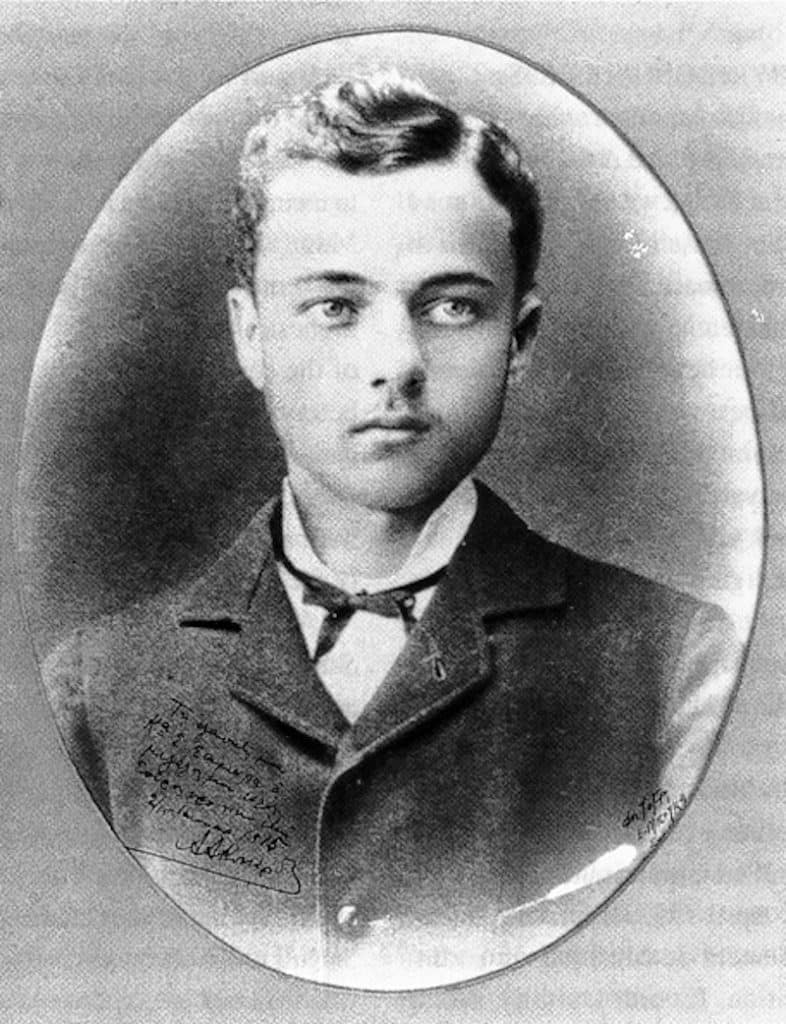The story of greek music is as long and rich as the country’s history. The first evidence of musical culture in the region can be traced back to 3,500 BC. From Ancient Greece to Byzantine Empire, many great composers have contributed towards this beautiful art form.
In this post, we’re going to take a look at 10 of the greatest Greek composers and their lives and music. Let’s get started.
1. Vangelis
Born Evangelos Odyssey Papathanassiou on March 9, 1943, in Greece, Vangelis is one the most influential personalities in the history of electronic music and film scores.
Music came to him as a natural gift as Vangelis never learned to read or write music but started playing the piano and other musical instruments as early as four years old.
In the early 1960s, Vangelis founded the band Forminx with four other members which gained popularity in Greece.
The band produced nine hit singles before disbanding in 1966.
In 1968, Vangelis founded a progressive rock band named Aphrodite’s Child with three other members and recorded their first hit single, “Rain and Tears.”
Success followed with more singles and two albums, all together with selling over 20 million copies.
Vangelis gained worldwide recognition when he created the music score for the film Chariots of Fire, based on the 1924 Summer Olympics.
His work won Vangelis the Academy Award for Best Original Music Score.
Later Vangelis produced scores for the films Blade Runner and 1492: Conquest of Paradise.
With a career spanning over 49 years, working on and composing over 40 albums, music critics regard Vangelis as one of the greatest composers of electronic music of all time.
2. Mikis Theodorakis

Legendary Greek composer Mikis Theodorakis was born in 1925, in Chios, Greece.
Throughout his career, Theodorakis composed over 1000 songs and contributed to the Greek and the international music industry.
Most of his work focuses on 20th-century classical Greek music, based on various genres.
To his credit, Theodorakis has many symphonic works, cantatas, chamber music, ballets, operas, and music score for films Zorba the Greek (1964), Serpico (1973), and Z (1969).
The Mauthausen Trilogy, also known as The Ballad of Mauthausen, is possibly his best work and is regarded as “The most beautiful musical work ever written about the Holocaust.”
Theodorakis was arrested and exiled for his hatred and resistance towards the military junta in Greece during his career.
He transformed his painful experiences to music with compositions, Ta Laïka, Trojan Women, State of Siege, and Canto General.
Now in his nineties, Mikis Theodorakis is known as one of the best living Greek composers.
3. Iannis Xenakis

Known as one of the leaders of modernism in music, Iannis Xenakis was born on May 29, 1922, in Braila, Romania, to Greek parents.
During the 1940s, Xenakis aimed for a career in engineering and began pursuing education at the Athens Polytechnic Institute.
Still, he could not continue for long due to the German Nazi invasion of Greece.
Xenakis joined Greek resistance groups and fought against the occupation for four years.
During the war, a brutal injury disfigured his face and cost him the sight of one eye.
Xenakis fled to Paris in 1947 and diverted his attention to studying musical composition.
He is best known as the originator of stochastic music, composed through electronic computers and mathematical probability theory.
Due to failing health, Xenakis, 78 at the time, died in Paris on February 4, 2001.
According to the Los Angeles Times, upon hearing of Xenaki’s death, French President Jacques Chirac exclaimed, “France loses one of its most brilliant artists today.”
4. Yanni
When it comes to new-age music, Yanni needs no introduction.
The artist rose to fame during the 1980s and ’90s and enjoyed success only a few could match up to.
Born Iannis Chryssomalis on November 14, 1954, in Kalamata, Greece, Yanni revealed his musical talent when he was only six years old.
Yanni has no formal music education and learned music at his own pace.
In 1977, Yanni acquired a majors degree in Psychology from the University of Minnesota.
Alongside he played in a local band and continued his personal studies of musical instruments.
After working with many bands during the 1970s, Yanni moved to Los Angeles to produce film music scores and pursue a career as a solo artist.
His album Dare to Dream in 1992 earned Yanni his first Grammy nomination, and his popularity grew even more; and made appearances in high-profile tv shows and magazines such as Oprah and Time Magazine.
Yanni was given the rare liberty to perform at some exquisite and restrictive venues such as the Taj Mahal, Forbidden City, the Kremlin, Royal Albert Hall, and the Acropolis of Athens.
5. Georges Aperghis
Georges Aperghis was born on December 23, 1945, in Athens, Greece. His father Achilles was a sculptor, while his mother Irene was a painter.
It wasn’t tough to guess Aperghis would also pursue a career in visual arts. He mainly focused on painting and music, which he encountered on radio and piano lessons from a family friend.
In 1963, Aperghis gave up painting to study music. Hegained recognition in 1971 for La tragique histoire du nécromancien Hieronimo et de son miroir which he composed for sopranos lute and cello.
In 1976, he founded his music and theatre company ATEM (Atelier Théâtre et Musique) and served as director till 1990.
Since 1996, Aperghis has diverted away from theatre and contributed more towards instrumental composition.
6. Stavros Xarchakos
Stavros Xarchakos was born on March 14, 1939, in Athens, Greece, where he pursued an education in the Athens Conservatoire.
He gained prominence in Greek music around 1963 after he composed music for theatre and cinema.
He moved to Paris in 1967 to study with Nadia Boulanger.
After four years, he studied with David Diamond at the Juilliard School of Music.
While he composed music in the classical genre, his main compositional style was based on the popular Greek music, Laika.
Xarchakos has 42 albums, 21 film scores, and 15 tv productions to his credit.
The legendary composer has also served as director of the National Orchestra of Greek Music.
7. Nikos Skalkottas

Despite being extremely talented, Nikos Skalkottas remained unrecognized throughout his short lifetime.
Even after his death, his music gained limited recognition.
Born on March 21, 1904, in Chalcis on the island of Euboea, Skalkottas began learning the violin from his father and uncle at the age of five.
He studied the violin at the Athens Conservatory for six years and graduated as a virtuoso violinist, but with limited knowledge about composition.
Despite being a successful violinist, Skalkottas geared his focus towards composition in 1925.
He was also a member of Arnold Schoenberg’s Masterclass in Composition at the Academy of Arts from 1927 till 1932.
Unfortunately, the financial crisis took the best of him, and his work was never positively received by the critics and public.
Skalkottas died of hernia failure on September 20, 1949.
After his death, many musicians began promoting his work to bring recognition to the neglected singer.
8. Manos Hatzidakis
One of the few greatest Greek composers to rival Mikis Theodorakis is Manos Hatzidakis.
Born on October 23, 1925, in the northern town of Xanthi, Greece, Hatzidakis began taking piano lessons at age four and later went on to learn violin and accordion.
His work as a songwriter earned him tremendous popularity in Greece, and he gained international recognition through his soundtracks for films.
His song Never on Sunday for a movie of the same name won him an Academy Award for Best Original Song in 1960.
Hatzidakis also composed contemporary classical music inspired by Greek poetry and also wrote for ballet and theatre.
Many of his compositions, songs, and recordings are considered Greek classics and an epitome of modern Greek music.
His health began to deteriorate in the ’90s, and he died on June 15, 1994, at the age of 68.
9. Manolis Kalomiris
Manolis Kalomiris was born on December 14, 1883, in Smyrna (now Izmir) and is recognized as the father of modern Greek music.
He is also the founder of the Greek National School of Music.
Kalomiris debuted as a composer in one of the renowned concerts of the Odeon of Athens in 1908.
He wrote 222 compositions, including songs, operas, symphonies, orchestral music, chorals, chamber music, and more.
The inspiration behind his music was Russian national music, demotic Greek songs, and Greek poets such as Nikos Kazantzakis and Angelos Sikelianos.
Kalomiris also founded the Greek Odeon and co-founded the Union of Greek Composers.
The legendary composer died on April 3, 1962, in Athens, Greece.
10. Spyridon Samaras

Spyridon-Filiskos Samaras was born on November 27, (O.S November 17) 1861 in Corfu.
He secured early education from Spyridon Xyndas and studied at the Athens Conservatory from 1875 to 1882.
In 1882, he moved to Paris to study at the Paris Conservatoire and worked as a successful composer for three years before moving to Italy in 1885.
Samaras gained quick recognition in the Italian Opera scene, and later his works were staged in Paris, Berlin, Malta, Monte Carlo, Alexandria, and more.
Samaras was given the honor to compose the Olympic Anthem, which was first performed at the 1986 Summer Olympics.
In 1958, the International Olympic Committee declared it as the official anthem of the Olympic movement, and it has been performed at every Olympic opening ceremony since 1960.
The legend breathed his last on April 7 (O.S March 25) 1917, in Athens.
Summing up Famous Greek Composers
Although not quite as mainstream as composers from other European countries, the above list of Greek composers have heavily contributed to Greek music, history, culture, society, and humanity as a whole.
So if you’re looking for some new classical tunes or simply want to brush up on your knowledge about these legends – we hope you enjoy listening to their incredible work!


